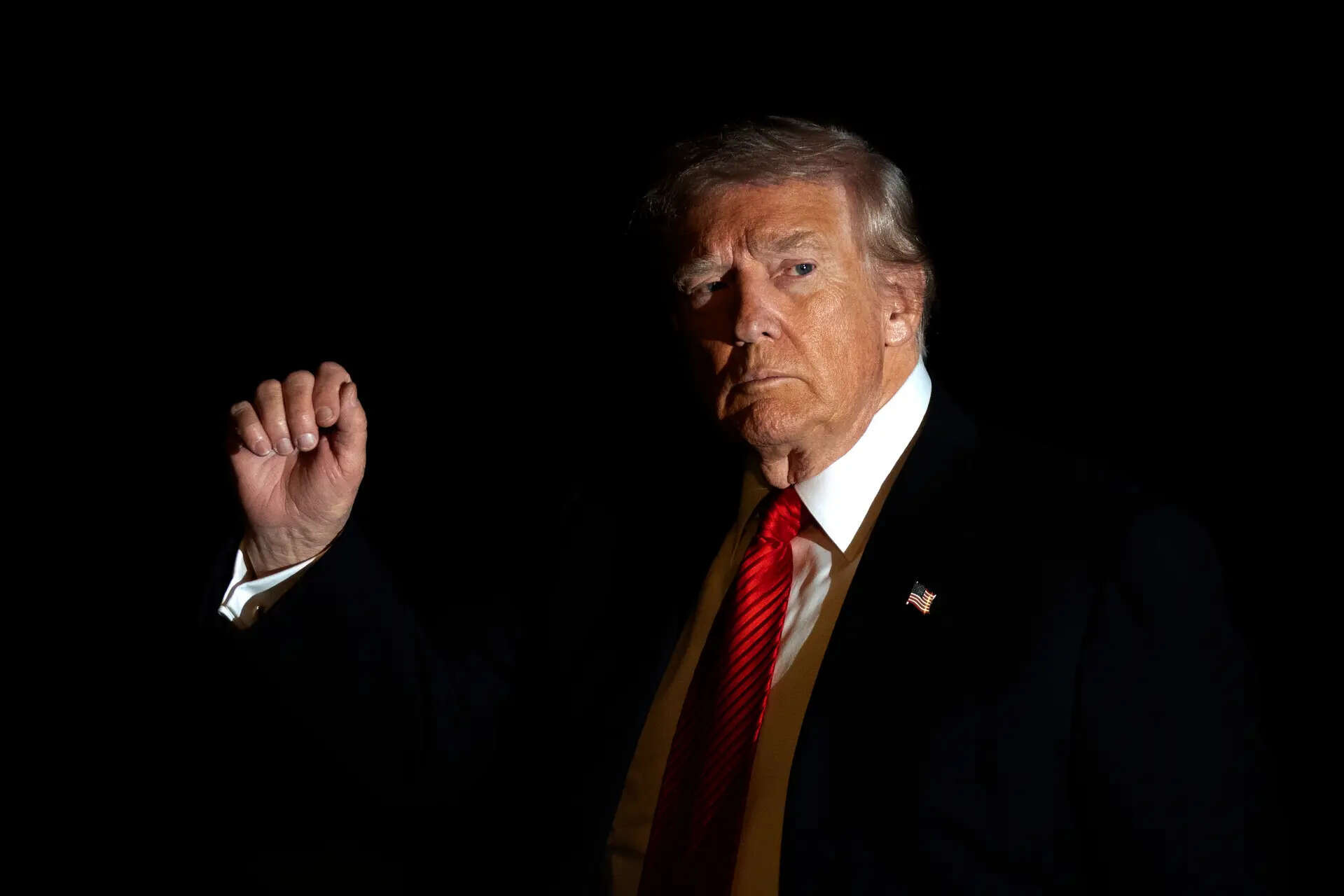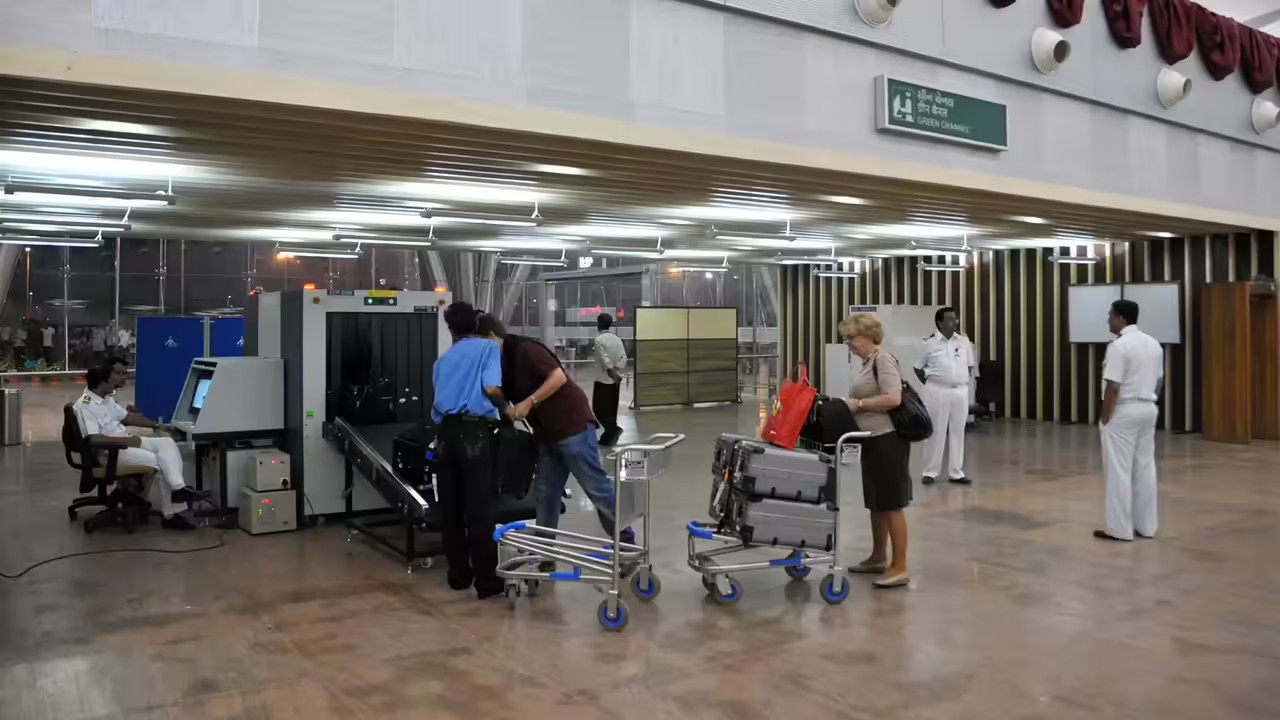President Trump warns of severe economic fallout if the Supreme Court overturns his tariff policy. He claims tariffs have fueled record stock market highs and 401(k) growth. The upcoming Supreme Court case challenges his authority to impose these taxes, which have generated billions in revenue, potentially requiring repayment if ruled unlawful.
The Tariff Tightrope: Could a Supreme Court Ruling Topple the Economy?
Donald Trump has thrown down the gauntlet, warning of potential economic catastrophe if the Supreme Court dares to strike down presidential authority on tariffs. The former President’s statement has sent ripples through the economic and legal communities, sparking intense debate about the balance of power and the potential consequences of judicial intervention in trade policy. What’s really at stake, and is this just political hyperbole or a genuine threat to America’s financial stability?
The heart of the issue lies in the long-standing legal debate over the President’s power to impose tariffs. Historically, Congress has delegated significant authority to the executive branch in matters of international trade. This delegation is built on the idea that the President, with access to up-to-the-minute global intelligence and a dedicated team of negotiators, can act swiftly and decisively to protect American economic interests. However, critics argue that this delegation has become too broad, essentially allowing the President to act unilaterally on issues with enormous economic implications, bypassing the checks and balances intended by the Constitution.
Trump’s tariffs on goods from China, for example, were implemented under this delegated authority. He argued that these tariffs were necessary to address unfair trade practices and protect American jobs. These actions, while praised by some for their aggressive stance, also led to retaliatory tariffs from other countries, disrupted supply chains, and ultimately increased costs for American consumers and businesses.
Now, imagine the Supreme Court decides to rein in this presidential power, ruling that Congress must explicitly authorize specific tariffs. Trump argues that such a ruling would unleash economic chaos. He paints a picture of other nations taking advantage of the US, flooding the market with cheap goods, and decimating American industries. According to him, the economy would “collapse,” a stark and arguably exaggerated warning.
But is such a dire prediction realistic? The impact of a Supreme Court decision limiting presidential tariff power is complex and far from certain. On one hand, greater Congressional oversight could lead to more considered and balanced trade policies. Tariffs would be subject to greater scrutiny, potentially reducing the risk of impulsive or poorly conceived trade wars. This could lead to more stable and predictable international trade relationships, benefiting businesses and consumers alike. 
On the other hand, a more cumbersome tariff process could hinder the nation’s ability to respond quickly to unfair trade practices or protect domestic industries from sudden surges in imports. Imagine a foreign country suddenly starts dumping heavily subsidized goods on the American market. If the President can’t act swiftly, American businesses could suffer significant damage before Congress can even debate and pass legislation imposing tariffs. The ability to react quickly is seen as vital for maintaining a level playing field in international trade.
The potential implications extend beyond just economics. A Supreme Court ruling on tariffs could also have significant political ramifications. It would undoubtedly reshape the balance of power between the executive and legislative branches, potentially leading to greater political gridlock on trade policy. It could also become a rallying cry for different political factions, further polarizing the already divisive issue of international trade.
The debate also raises fundamental questions about the role of the Supreme Court in shaping economic policy. Should the Court defer to the political branches on matters of trade, or should it actively intervene to protect constitutional principles and prevent potential abuses of power? There are strong arguments on both sides, and the Court’s decision could have a lasting impact on the future of American trade policy. This is not an isolated issue. It is tied to broader concerns about the delegation of power and the need for accountability in government. You might also want to read about the impact of current trade deficits.
Ultimately, the future of presidential tariff power rests with the Supreme Court. While Trump’s warnings of economic collapse may be overblown, there is no doubt that the Court’s decision will have significant economic and political consequences. The debate highlights the inherent tensions between the need for decisive executive action and the importance of checks and balances in a democratic system. What’s certain is that the outcome will reshape how the United States engages with the world economically for years to come.







